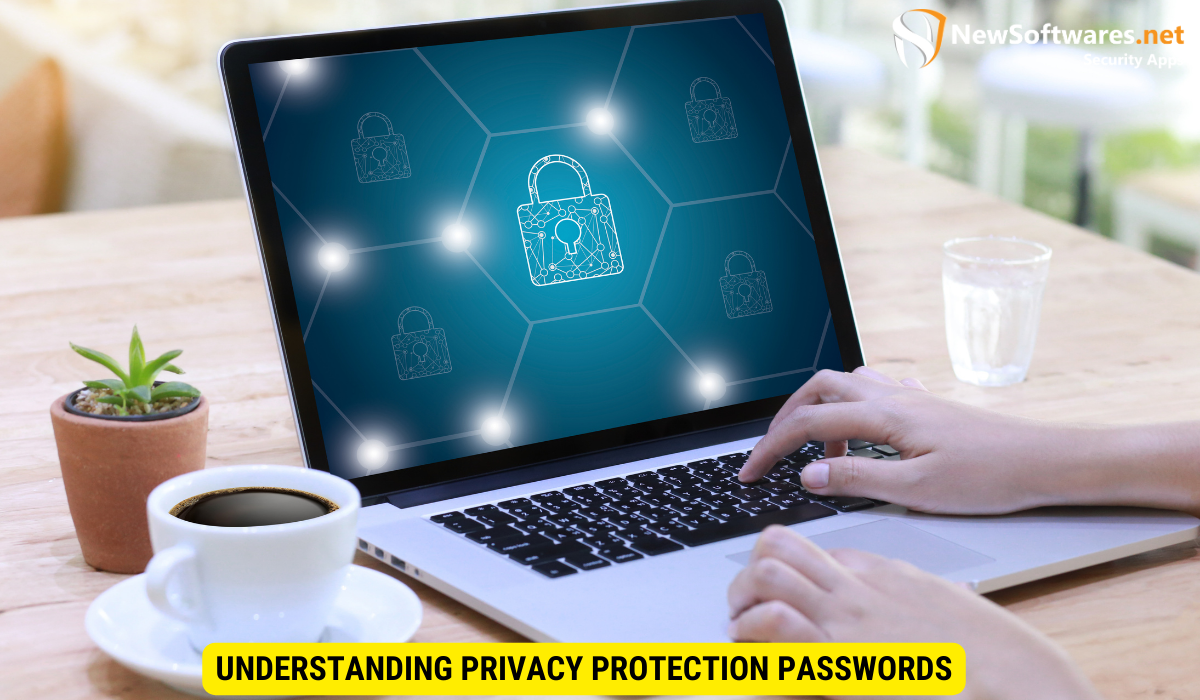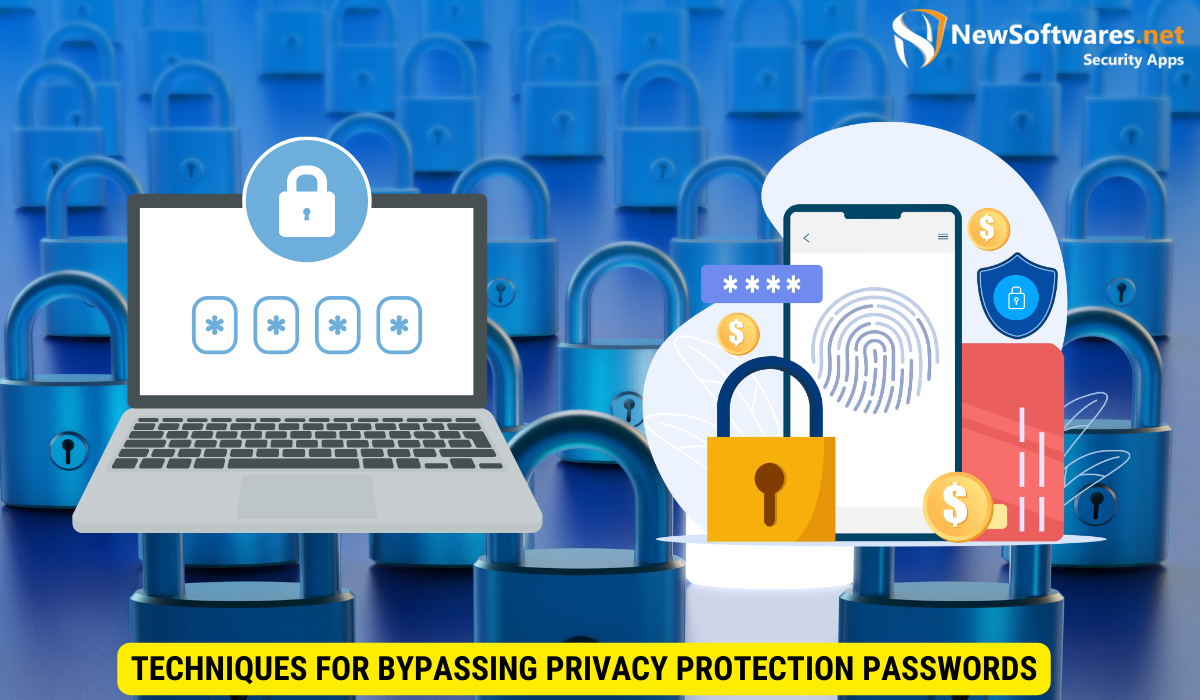Attempting to bypass privacy protection passwords without lawful authority is illegal and unethical. However, there may be certain circumstances where bypassing privacy protection is legally acceptable, such as in law enforcement investigations or legal proceedings. It is essential to consult with legal professionals to ensure compliance with the specific laws and regulations of your jurisdiction. Respecting others’ privacy and rights should always be a priority.
In this digital age, where our personal information is stored and protected by passwords, it is not uncommon to encounter situations where we need to bypass privacy protection. Whether it’s due to a forgotten password or a need for access in extreme circumstances, understanding how to bypass privacy protection passwords can be crucial. I will explore the concept of privacy protection passwords, their legal and ethical implications, techniques for bypassing them, the risks and consequences involved, and ways to protect yourself from privacy bypassing.
Understanding Privacy Protection Passwords

Privacy protection passwords play a vital role in safeguarding our sensitive data from unauthorized access. These passwords serve as a barrier preventing unauthorized users from gaining access to our personal information. They enhance the protection of our devices, accounts, and valuable data. However, there are instances where individuals may find themselves needing to bypass privacy protection passwords, and it’s important to consider the implications of such actions.
The Role of Privacy Protection Passwords
Privacy protection passwords provide an extra layer of security by ensuring that only authorized individuals can access specific devices, accounts, or files. They act as a deterrent to potential data breaches and unauthorized use. With privacy protection passwords in place, it becomes more challenging for hackers or intruders to gain access to your personal information.
Moreover, privacy protection passwords are crucial in maintaining confidentiality and integrity in various professional settings. For businesses, these passwords are essential in protecting sensitive company data, trade secrets, and financial information. By implementing robust privacy protection measures, organizations can mitigate the risk of data leaks and cyber-attacks, safeguarding their reputation and maintaining the trust of their clients and stakeholders.
The Mechanics of Privacy Protection Passwords
To appreciate the concept of bypassing privacy protection passwords, it is essential to understand how they work. Privacy protection passwords are typically stored in an encrypted form within the device or system they are designed to protect. When you enter the correct password, the system decrypts it and grants access. Bypassing privacy protection involves finding alternative methods to gain entry without using the original password.
Furthermore, the encryption algorithms used in privacy protection passwords are designed to withstand various hacking techniques, such as brute force attacks and dictionary attacks. These algorithms ensure that even if unauthorized individuals attempt to crack the password, the complexity of the encryption makes it extremely challenging to do so. By incorporating advanced encryption technologies, developers strive to create secure systems that can withstand evolving cyber threats and protect user data effectively.
Legal and Ethical Implications of Bypassing Privacy Protection
Bypassing privacy protection raises a number of legal and ethical concerns. While it is crucial to respect the privacy of individuals and their personal information, there may be circumstances where bypassing privacy protection is legally acceptable. It’s important to be aware of the legal implications to avoid any unlawful actions.
When is it Legal to Bypass Privacy Protection?
The legality of bypassing privacy protection varies depending on the jurisdiction and the specific circumstances. In some situations, such as law enforcement investigations or legal proceedings, authorities may be granted the power to legally bypass privacy protection passwords. However, it is crucial to consult with legal professionals to ensure compliance with the specific laws and regulations of your jurisdiction.
Ethical Considerations in Privacy Bypassing
Aside from the legal implications, there are ethical considerations to take into account when bypassing privacy protection. It is essential to carefully assess the reasons for bypassing privacy protection and the potential impact of gaining unauthorized access to someone’s personal information. Respecting others’ privacy and rights should always be a priority.
Techniques for Bypassing Privacy Protection Passwords

Multiple techniques exist for bypassing privacy protection passwords, ranging from software tools to hardware methods. It’s important to approach these techniques with caution, ensuring that they are only used in legitimate and lawful scenarios.
Software Tools for Bypassing Passwords
Various software tools are designed to assist in bypassing privacy protection passwords. These tools often exploit vulnerabilities or weaknesses within the system to gain unauthorized access. It is crucial to note that using such tools without the necessary legal authority can result in serious consequences.
Hardware Methods for Bypassing Passwords
Hardware methods involve physical manipulation of the device or system to bypass privacy protection passwords. These methods often require technical expertise and specialized equipment. It’s important to be aware that unauthorized hardware manipulation can potentially void warranties or violate legal agreements.
Risks and Consequences of Bypassing Privacy Protection
Bypassing privacy protection passwords, whether done intentionally or unintentionally, comes with certain risks and consequences. Understanding these risks can help individuals make informed decisions and weigh the potential outcomes before taking action.
Potential Risks of Bypassing Privacy Protection
One of the key risks of bypassing privacy protection is the potential compromise of personal information, leading to identity theft or unauthorized use of data. Additionally, bypassing privacy protection may result in the loss of warranties or support from manufacturers or service providers. It’s crucial to be aware of these risks and consider the potential impact before attempting to bypass privacy protection.
Consequences of Unlawful Bypassing
Unlawful bypassing of privacy protection can result in severe legal consequences, including fines, imprisonment, or both. Engaging in illegal activities can tarnish your reputation, impact future career prospects, and result in civil lawsuits. It is important to stress that unauthorized access to private information is a violation of law and ethics.
Protecting Yourself from Privacy Bypassing
While it’s important to understand the techniques for bypassing privacy protection, it’s equally important to take steps to protect yourself from unauthorized access to your personal information.
Best Practices for Protecting Your Privacy
Implementing strong and unique passwords, enabling two-factor authentication, and keeping your devices and software up to date are some of the best practices for protecting your privacy. Regularly reviewing and modifying privacy settings on your devices and online accounts can also significantly enhance your protection against privacy bypassing.
Advanced Security Measures for Privacy Protection
For individuals who require an extra layer of security, advanced measures such as biometric authentication, encrypted storage, or virtual private networks (VPNs) can offer added protection against unauthorized access. Engaging the services of cybersecurity professionals or consultants can help individuals identify vulnerabilities and implement tailored security solutions.
Key Takeaways
- Privacy protection passwords play a crucial role in safeguarding personal information from unauthorized access.
- Bypassing privacy protection passwords without lawful authority is illegal and unethical.
- There may be circumstances where bypassing privacy protection is legally acceptable, such as in law enforcement investigations or legal proceedings.
- Using software tools or hardware methods to bypass privacy protection without the necessary legal authority can result in severe consequences.
- It is important to take steps to protect yourself from unauthorized access to your personal information, such as implementing strong passwords and keeping your devices and software up to date.
FAQs
1. Is bypassing privacy protection passwords illegal?
Bypassing privacy protection passwords without lawful authority is generally illegal. However, there are exceptions in certain circumstances, such as law enforcement investigations or legal proceedings. It is essential to consult legal professionals to ensure compliance with the specific laws and regulations of your jurisdiction.
2. Are there any ethical considerations when bypassing privacy protection?
Yes, there are ethical considerations to take into account when bypassing privacy protection. It is important to carefully assess the reasons for bypassing privacy protection and the potential impact of gaining unauthorized access to someone’s personal information. Respecting others’ privacy and rights should always be a priority.
3. What are the risks of bypassing privacy protection?
Bypassing privacy protection comes with certain risks, such as the potential compromise of personal information, identity theft, or unauthorized use of data. Additionally, engaging in illegal activities can result in severe legal consequences, including fines, imprisonment, or both.
4. How can I protect myself from privacy bypassing?
To protect yourself from privacy bypassing, it is important to implement strong and unique passwords, enable two-factor authentication, and keep your devices and software up to date. Regularly reviewing and modifying privacy settings on your devices and online accounts can also significantly enhance your protection against privacy bypassing.
5. Are there advanced security measures for privacy protection?
Yes, there are advanced security measures available for individuals who require an extra layer of protection. These measures include biometric authentication, encrypted storage, or virtual private networks (VPNs). Engaging the services of cybersecurity professionals or consultants can help individuals identify vulnerabilities and implement tailored security solutions.
Conclusion
Protecting our privacy is of utmost importance in today’s digital landscape. While the use of privacy protection passwords offers an effective means of keeping our personal information safe, there may be scenarios where bypassing privacy protection becomes necessary. The decision to bypass privacy protection should always be based on legal authority and ethical considerations. Respecting privacy, understanding the consequences, and implementing strong security measures are essential elements of maintaining a secure digital environment.
